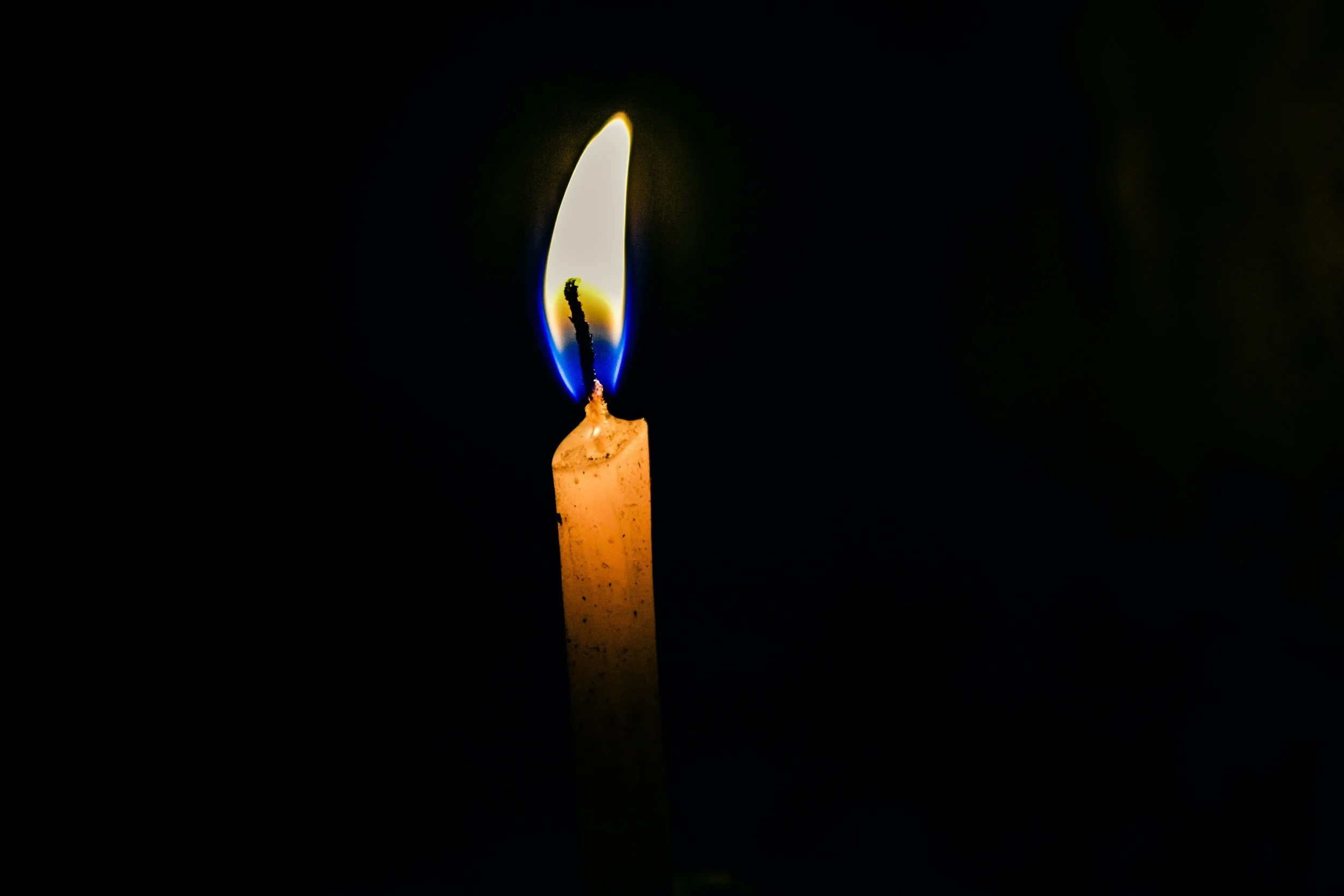Knowing
The climb up to the monastery had been difficult. The monastery was built high on the cliffs of Meteora, sometime back in the 14th century. Beyond the monastery, you see the sweeping plain of Kalambaka, the small Greek towns below, and in the distance, other monasteries that dot the cliff walls.
You arrived just as Vespers began. You stood entranced by the chanting monks, the whirling incense, and crossed yourself many, many times. At last, you were dismissed with one last triple intonation of “Lord, have mercy!”
You stood in the courtyard of the monastery, staring up at the night, transported out of the magic of liturgy, back into the heavy realness of the world. The liturgy never failed to make you see things freshly, never failed to make you aware of how sharp and real the air, the stone, and your sky were.
Soon, a priest put his hand on your shoulder and guided you back into the monastery, into its winding guts and into a tiny monastic cell with an even tinier window hewn into the stone.
Before you was an aged monk, his eye shining in the candlelight so you could see his cataracts and every crevice of his wrinkled face. His robes were black, his beard white and long, and in his hands he held the tiny studded prayer rope of the hesychasts.
You crossed yourself, kissed the hand, then both cheeks of the monk. “Father Theophanes. It is so good to see you again.”
The old man smiled a crooked grin, “I wish I could say the same,” he said.
He asked of your children, your parents, and after a wandering story about the cooking prowess of his fellow monks, he asked of your soul.
“So, will you at last tell me why you have come all this way?”
You chuckled, “I’ve told you many times why I’m coming, don’t you remember? Or have you lost your memory with your sight?” You touched his hand and he chuckled. “I’m here because I don’t understand. Will you teach me again of how to see without seeing, to know without knowing?”
The old man nodded and was silent a long moment. Finally, he nodded again and spoke.
“When I was a boy, I met a beautiful girl. Her hair was brown, her skin sunkissed, her cheeks plump. She did not laugh easily, but I could make her laugh. Her laughter was my prize. I came to love her, as furiously and intensely as any young boy has loved. But what is that love? I cannot say that love was mature. I cannot say that love was deep. Nor can I say it was shallow. Was it fleeting? Surely, I cannot say it was. Nor was it permanent. It was neither rich, nor poor. Neither weak, nor strong. This is one of the great mysteries, that we cannot speak of love in any way that expresses it. Yet we know it truly and fully and deeply.”
“Yes, but…”
He smiled and raised a finger.
“Another story, then. Let’s travel in our minds up into the courtyard of the monastery. Let us look above us at the starry sky. But what’s this, some stars are winking in and out. We watch for a bit, and we see that these stars wink in and out in a pattern, and begin to see that it is not that the stars are disappearing, but rather, there is a night hawk, flying overhead, blocking our view. We come to know the exact shape of the hawk, not by seeing the wings themselves, by noting the absence of the stars.”
“Hmm.”
The old monk smiled, “You are not convinced of this way of seeing then.”
He paused a moment, then continued.
“How is it that we are saved? How is it that Christ descended into Hades and freed us? How is it that the Word became flesh? How is the Lord both fully Man and fully God? These questions are essential questions of our faith, but we must approach them slowly, with great patience, or else step off the path. We know that in the early days of our church, the Holy Fathers argued with and cast out heretics of all sorts. We know how easy it is to miss the mark. Is there a way that we could approach the Throne with humility instead of hubris? Can we know the nature of God without understanding?”
“ The errors are easier to see than the right way. The wrong easier to identify than the right. We can speak easily of mistakes, wrong paths, and wrong thinking. Heresy is easily defined, but the truth of Orthodoxy has only slowly been revealed to us. We see sin so easily and just action so murkily. Is it not one of the great mysteries of ourselves that we so readily know the wrong way but so rarely know the proper way?”
Again, he paused. Then held up his prayer rope and took a single knot between his fingers. “Lord Jesus Christ, Son of God, have mercy on me, a sinner. “
”We pray the Jesus prayer into the mysteries. How can we know what we speak of when we say the Lord’s name? How can we understand the Son of God? How can we know the depths of mercy we require? How can we know the breadth of our own sin? And yet, we pray. We can say these words with all our unknowing.
“Consider how we may be led by values we do not understand, yet we are led by them none the less. As St. Paul says, ‘we see now through the glass darkly.’”
“And now, my son, ask your questions.” He took your hand, smiled, and so you talked long into the night.





